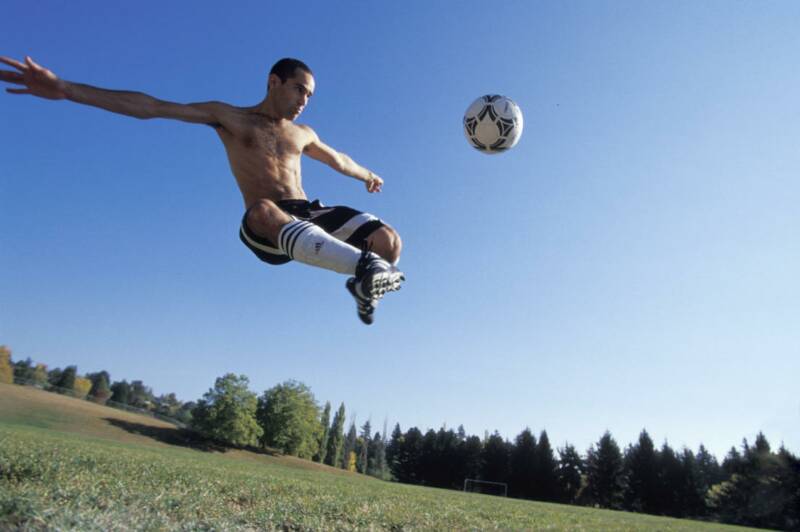An estimated three to seven percent of Americans have a diagnosis of ADHD. The national prevalence rate is a bit higher among children, but can be much higher in certain communities. As a result, just about every coach is likely to encounter a young athlete with ADHD at some point. Some coaches have numerous athletes with the ADHD diagnosis, and perhaps some who have the symptoms but no formal diagnosis.
Thousands of books and articles have been written for teachers on the topic of ADHD. Unfortunately, there few resources available for coaches (see the Learn More box for a good start). Coaching the ADHD-affected athlete is a topic in need of much more attention. But here are some guidelines for helping athletes with ADHD get the most out of their experience on your team.
1. Be aware of ADHD
The first thing we can do is be aware that we probably have athletes with ADHD under our care. Awareness can help us anticipate and plan for coaching the ADHD-affected athlete.
2. Get informed about your athletes
It is important to be informed about any of your athletes who have ADHD. One approach is to privately ask your athletes and/or parents to let you know about any ADHD diagnoses. This is important from a medical standpoint as well as coaching. It is important to know whether our athletes are on any prescription drugs in case of serious injury.
Attention Deficit Hyperactivity Disorder (ADHD) is a diagnosis applied to children and adults who display certain characteristic behaviors over time. As the name implies, these behaviors indicate difficulty paying attention and, in some cases, hyperactivity. ADHD includes the more commonly used term, 'ADD'. The two terms are basically interchangeable.
3. Remember it's a condition, not an attitude
There is no denying that athletes with ADHD can present a challenge to a coach. They may have difficulty following directions. They may be late or disorganized. They may be hypersensitive to criticism. They may say they understand something when they don't. They may promise to do something and then not deliver.
If an athlete with a diagnosis of ADHD displays these behaviors, it is VERY important that we do not view their mistakes as signs of disrespect. We should definitely hold them accountable for their behavior, but we should try not to question their character. Most of these athletes feel bad enough already. They really don't mean any disrespect. They just have certain gaps which cause them to misfire when it comes to execution. When we question their character, we may create a wedge which becomes a barrier to trust and improvement.
4. Remember the athlete's assets
It is also important to remember that many athletes with ADHD bring some valuable assets to the team. For one thing, they can be highly energized and creative in competition, even (sometimes especially) under pressure. Some athletes with ADHD demonstrate a good 'feel' for the spatial elements of their sport, which allows them to stay in the moment and perform while other athletes may be overthinking. In the locker room, they can be highly communicative and compassionate, and a favorite of their teammates. The proof of the potential of the athlete with ADHD is in the pudding: Countless athletes with ADHD have become excellent performers and leaders. Yours can, too.
5. Use visuals and demonstrations
From a very practical perspective, it is important to remember that athletes with ADHD can easily get lost in verbal instruction. We can help them grasp our teaching by supplementing our words with detailed demonstrations and graphic illustrations (on a board or in a handout). It also helps to confirm their understanding by asking them to give us eye contact, and requesting them to speak-back or demonstrate-back what we just showed them.
6. Communicate and hold accountable
Communication is everything with the ADD athlete. To the extent you and your athlete can acknowledge the diagnosis and work together as partners, he or she can have a tremendous experience under your supervision. At the same time, it is important for the athlete with ADHD to be held accountable for the same team values as everyone else. Athletes with ADHD do not need pity or highly specialized accomodations. Open and honest communication backed with compassionate accountability is usually the winning strategy.
Coaching Points
1. Be aware of ADHD - chances are you have at least one ADHD-affected athlete
2. Get informed - work with athletes and parents to find out who has a diagnosis and whether they are on meds
3. Remember ADHD is a condition, not an attitude - take care not to mistake an ADHD symptom for disrespect
4. Remember the athlete's assets -- athletes with ADHD can bring some much-needed strengths to a team
5. Use visuals and demonstrations in addition to words - this can help your ADHD athlete and everyone else, too
6. Communicate and hold accountable - the ADHD athlete needs clear communication, but he or she does not need pity or special treatment.
